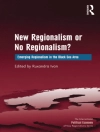Terrortimes, Terrorscapes: Continuities of Space, Time, and Memory in Twentieth-Century War and Genocide investigates interconnections between space and violence throughout the twentieth century, and how such connections informed collective memory. The interdisciplinary volume shows how entangled notions of time and space amplified by memory narratives led to continuities of violence across different conflicts creating “terrortimes” and “terrorscapes” in their wake. The volume examines such continuities of violence with the help of an analytical framework built around different themes. Its first part, spatial and temporal continuities of violence, looks at contested spaces and ideas of national, ethnic, or religious homogeneity that are often at the heart of prolonged conflicts. The second part, on states and actors, addresses the role of states as enablers of violence, asymmetric power dynamics, and the connection between imperialism and genocide in Africa. Imagination and emotion—the focus of the third part—explores utopian visions and their limits that instigate or hinder, and the mobilization of emotion through propaganda. Finally, the fourth part shows how the recollection of the past sometimes triggers new terrortimes. Departing from an understanding of violence limited to certain areas and time frames, this volume describes continuities of violence as overlapping fabrics woven together from notions of space, time, and memory.
قائمة المحتويات
List of Figures
Introduction. Terrortimes and Terrorscapes? Rethinking Continuities of Space, Time, and Memory, by Volker Benkert and Michael Mayer
Part 1. Spatial and Temporal Continuities
1. Contested Spaces: Criminalization of Marginalized Communities in Former Habsburg Lands in the First Half of the Twentieth Century: The Case Study of Austrian Zigeuner (“Gypsies”), by Ursula K. Mindler-Steiner
2. Space and Ideas of National, Ethnic, or Religious Homogeneity: Polish and German Jewish Survivors in the Recovered Territories in Post – World War II Poland, by Anna Cichopek-Gajraj
Part 2. States and Actors
3. States as Contributors to or Enablers of Violence: Colonial Thinking Is Still with Us: Investigating the Colonial Record on the Occupation of Jambi and Rengat (1948 – 49) in the Indonesian War of Independence, by Bart Luttikhuis
4. Asymmetric Power Relations: Jihad Made in Germany? Creating Terrorscapes through German Undercover Intelligence Operations against Britain and Russia in Afghanistan, India, and Persia during the First World War: An Entangled History of Violence, by Michael Mayer
5. Third-Party Actors and the Question of Genocide: Imperialism and the Question of Genocide in Colonial-Era Africa, by Jason Bruner
Part 3. Imagination and Emotions
6. Utopian Ideologies and Their Limits: Private Lives in Wartime France: Desertion, Divorce, and Deprivation, by Rachel G. Fuchs
7. Emotion, Hope, Fear, and Belonging: Soviet Wartime Jazz: Propaganda and Popular Culture on the Eastern Front, by Benjamin Beresford
Part 4. Memory Continuities
8. Crafting the History of Terrortimes 1: Manufactured Memory: Crafting the Cult of the Great Patriotic War, by Yan Mann
9. Crafting the History of Terrortimes 2: Compartmentalized Memory: Coming to Terms with the Nazi Past and the Discourse on German Sufferings at the Turn of the Millennium, by Volker Benkert
10. Terrortimes in Transnational Perspective 1: Between National and European Memory? About Temporal and Spatial (Dis)Continuities in Post-1989 Dutch Memory Culture, by Ilse Raaijmakers
11. Terrortimes in Transnational Perspective 2: Remembering the Holocaust: Opportunities and Challenges, by Georgi Verbeeck
Epilogue. The Yardstick of History and the Measure of Redemption: Difficult Pasts in the United States and Germany Today, by Volker Benkert
About the Contributors
عن المؤلف
Michael Mayer is an assistant professor at the Political Academy in Tutzing, Germany. His research focuses mainly on the Holocaust in Vichy France, asylum policy in West Germany, and German foreign policy after 1949. An editor of several volumes, Mayer is also the author of States as Perpetrators: Ministerial Bureaucracy and Anti-Jewish Policy in National Socialist Germany and Vichy France. Most recently he edited The Persecution and Murder of the European Jews by Nazi Germany, 1933–1945, Volume 5.












